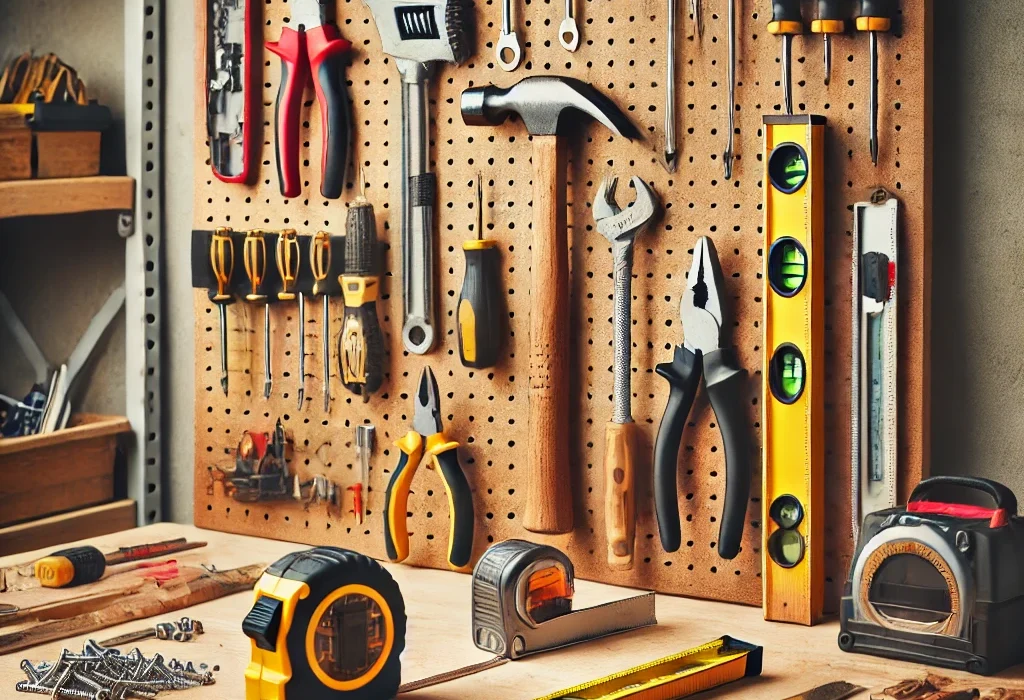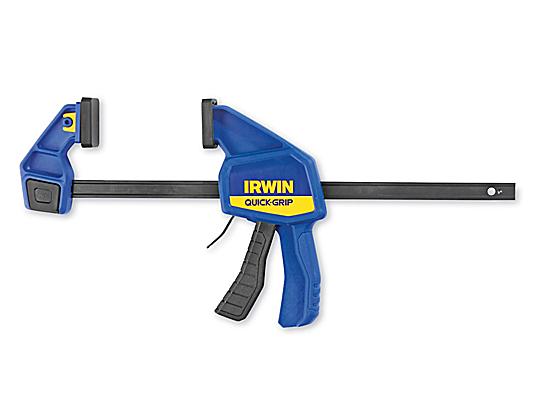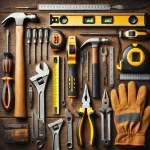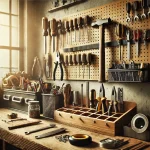Whether you’re tackling your first home improvement project or embarking on a journey of DIY craftsmanship, having the right tools is crucial for success. As a beginner, it can be overwhelming to know where to start and which hand tools are essential for tackling everyday tasks. Don’t worry—we’ve got you covered! In this blog post, we’ll explore the best hand tools for beginner DIYers, how they can help you on your journey, and where to start building your tool collection. Let’s dive in!
Why Every Beginner DIYer Needs a Solid Tool Collection
When you’re just starting out, it’s tempting to buy everything you might ever need for a project. However, the reality is that you don’t need a full-fledged toolbox of advanced, specialized equipment just yet. By focusing on a handful of versatile hand tools, you’ll be able to complete most common DIY tasks with ease.
The key to building your toolkit is choosing tools that serve multiple functions, ensuring you can take on a wide range of projects without feeling like you’re missing out on important pieces.
So, what should you prioritize as a beginner?
1. Hammer
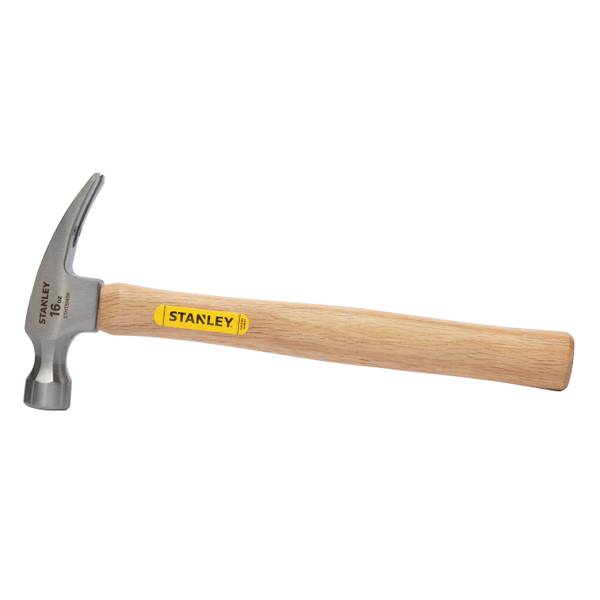
A hammer is the most essential hand tool every DIYer needs. From driving nails into wood to assembling furniture or hanging pictures, a hammer will be one of your most frequently used tools.
Best Option for Beginners:
The Stanley 16 oz. Rip Claw Hammer is an excellent choice for beginners. This hammer features a durable, solid steel construction and a comfortable, anti-vibe grip that reduces hand fatigue during extended use. The 16 oz. weight is perfect for most DIY tasks, providing enough power to drive nails without being too heavy. Its rip claw design allows for easy nail removal, making it a versatile option for a wide range of projects. Whether you’re framing a wall, hanging artwork, or fixing furniture, the Stanley Rip Claw Hammer will become a reliable tool in your collection.
2. Screwdrivers
Screwdrivers come in many shapes and sizes, but you’ll mostly need a flat-head and a Phillips screwdriver. These will allow you to work with the most common screw types.
Best Option for Beginners:
A multi-bit screwdriver set is a great choice. It provides versatility with interchangeable heads for different screws, ensuring you’re always ready for the task at hand. Look for a set that includes various sizes of both flat-head and Phillips heads.
3. Tape Measure
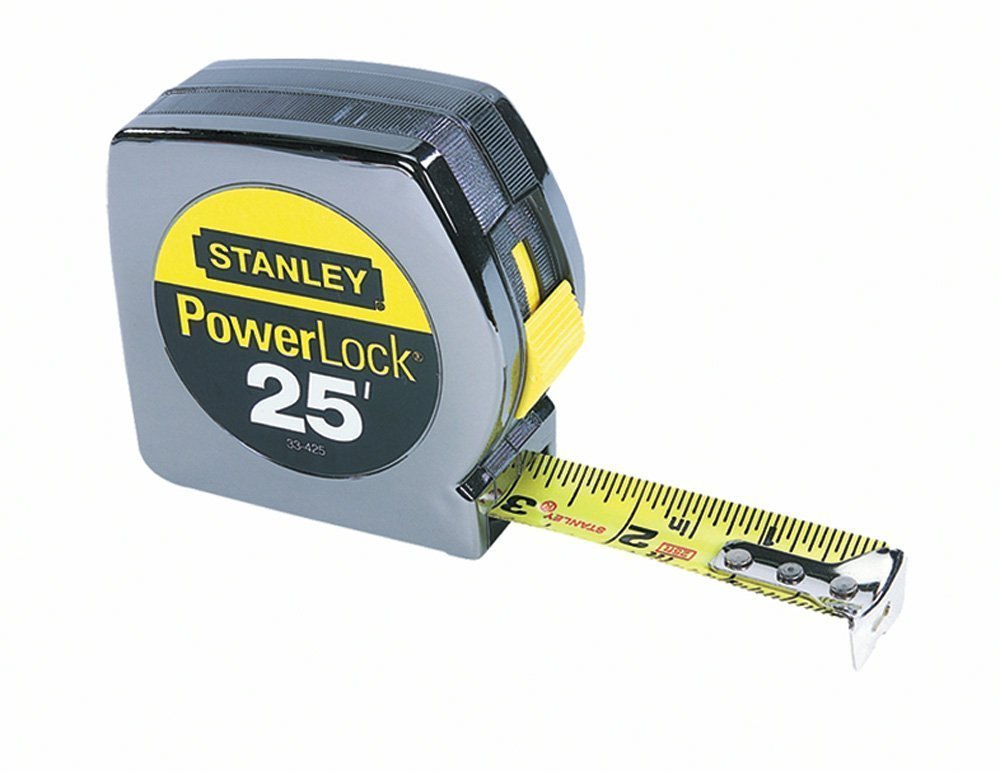
Accuracy is key when measuring for any DIY project, whether you’re installing shelves, building furniture, or just organizing your space. A tape measure is a must-have tool that helps you make precise measurements.
Best Option for Beginners:
A 25-foot tape measure will cover most of your basic measuring needs, such as measuring furniture, rooms, or items for storage. One highly recommended option is the Stanley 25′ Powerlock Tape Measure. Known for its durability and ease of use, this tape measure features a high-visibility blade and a tough, protective case, making it perfect for both indoor and outdoor projects. The Powerlock mechanism ensures the tape stays securely in place while you work, providing precision and convenience. Its compact size and ergonomic design also make it comfortable to handle, even for extended periods. This tape measure is an excellent investment for any beginner DIYer looking to get accurate measurements quickly and efficiently.
4. Utility Knife

Utility knives are incredibly versatile tools that can be used for cutting through materials like cardboard, fabric, plastic, drywall, and more. Whether you’re unpacking a new appliance or cutting through packaging, a utility knife makes the job quick and efficient.
Best Option for Beginners:
Look for a retractable utility knife with a comfortable grip. You can find many affordable options that feature snap-off blades for easy replacement.
5. Pliers
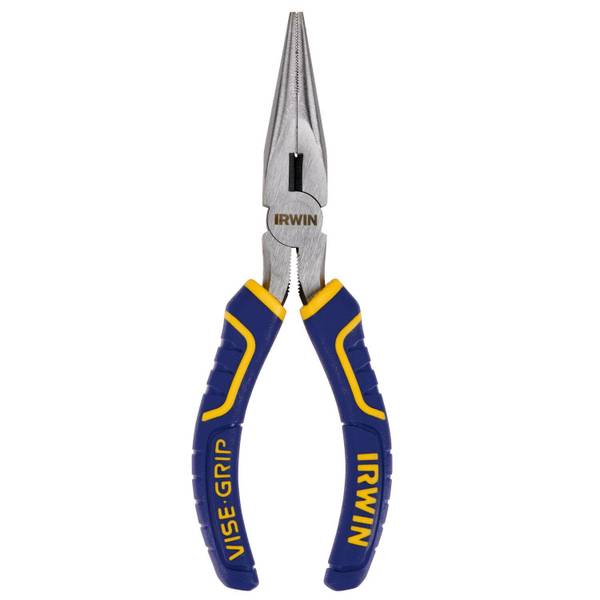
Pliers come in many shapes and sizes, but a basic pair of needle-nose pliers is ideal for beginners. They allow you to grip, twist, bend, or cut wire, as well as hold objects in place when you’re working with smaller materials.
Best Option for Beginners:
Start with a good set of Irwin Vise-Grip Long Nose Pliers. These pliers feature a slim nose that allows for precision gripping in tight spaces, making them perfect for small-scale tasks like electrical work, jewelry-making, or small repairs around the house. The extended reach of the long nose also makes it easier to manipulate objects in hard-to-reach areas.
For added versatility, consider the Irwin Vise-Grip Pliers 4-pc. Set. This set includes a range of pliers such as needle-nose, diagonal cutters, and both slip-joint and locking pliers. This variety ensures you have the right tool for any task, from gripping and twisting to cutting wires or clamping materials. With their high-quality construction and lifetime durability, this set is an excellent investment for beginners looking to build a reliable toolkit.
6. Level
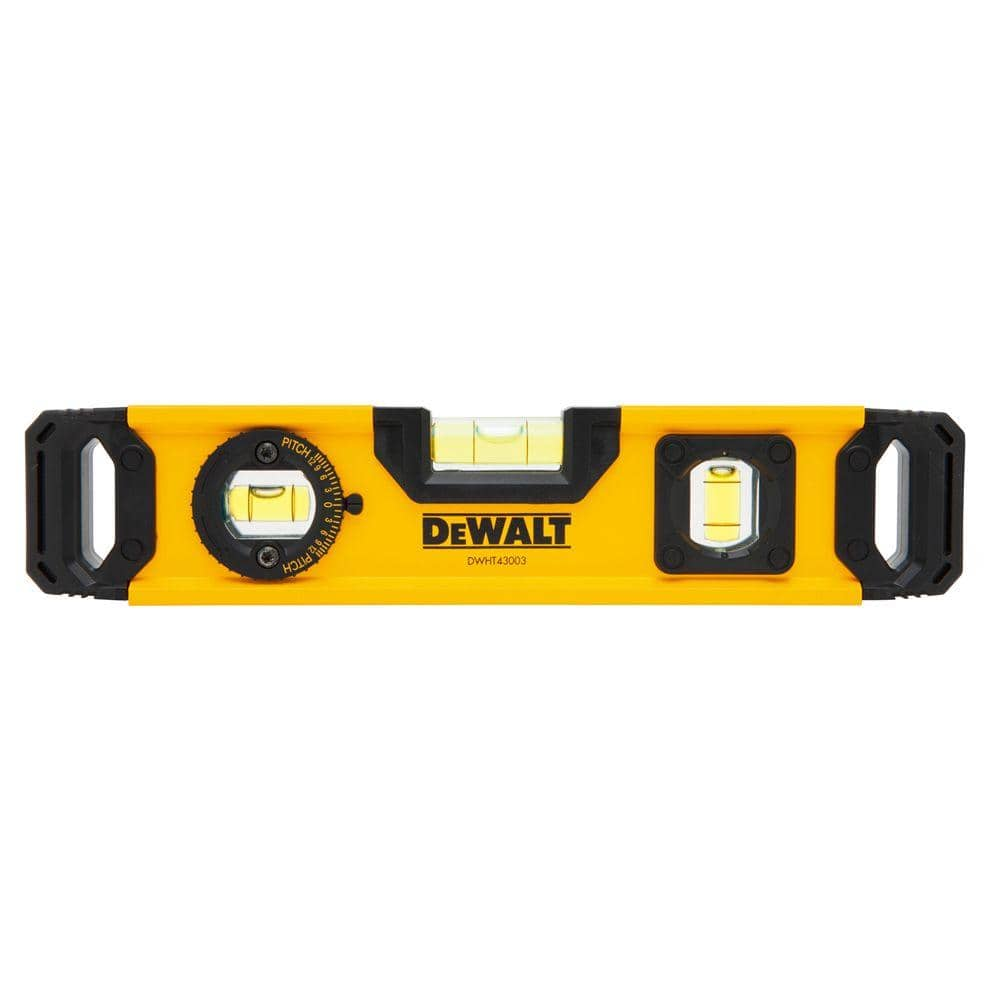
To ensure your projects are straight and balanced, a level is indispensable. Whether you’re hanging a picture, installing shelves, or building a piece of furniture, a level will help you maintain accuracy and prevent mistakes.
Best Option for Beginners:
A 24-inch spirit level is the most versatile option for DIYers. It’s long enough to be used on a variety of projects but compact enough to store easily. Some models also have additional features like built-in rulers or bubble vials for more precision.
7. Adjustable Wrench

An adjustable wrench is an incredibly handy tool that allows you to tackle many different sizes of nuts and bolts without needing an entire set of wrenches. It’s a must-have for everything from plumbing repairs to assembling furniture.
Best Option for Beginners:
A 6-inch adjustable wrench is a great place to start. It’s small enough to handle comfortably but still offers the flexibility to work with various fasteners.
8. Allen Wrenches (Hex Keys)
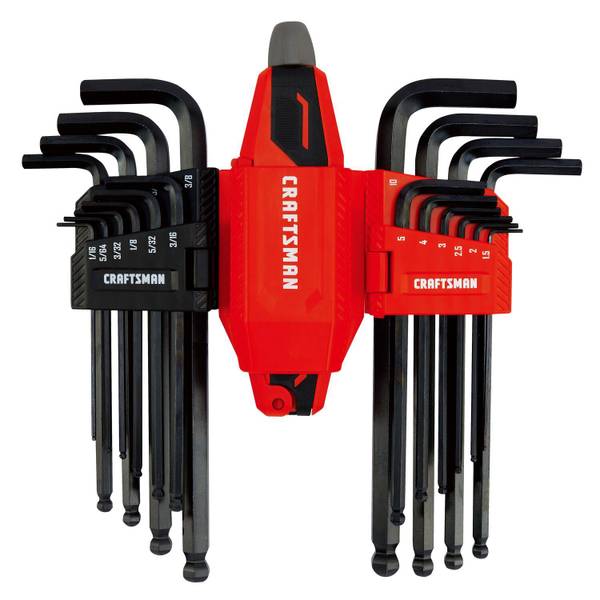
If you’re assembling flat-pack furniture or working with machinery, you’ll likely encounter hex bolts, which require an Allen wrench to tighten or loosen. A set of these tools is essential for those tasks.
Best Option for Beginners:
A CRAFTSMAN Hex Key 20-pc. set is an excellent choice for beginners. This set offers a wide range of sizes in both metric and imperial measurements, providing you with all the flexibility you need to handle various hex bolts. The durable construction of the CRAFTSMAN set ensures long-lasting use, and the ergonomic design makes it easy to grip and turn the keys, even during extended use. This set is compact, well-organized, and perfect for storing in your toolbox, ensuring you always have the right size for the job at hand.
9. Handsaw
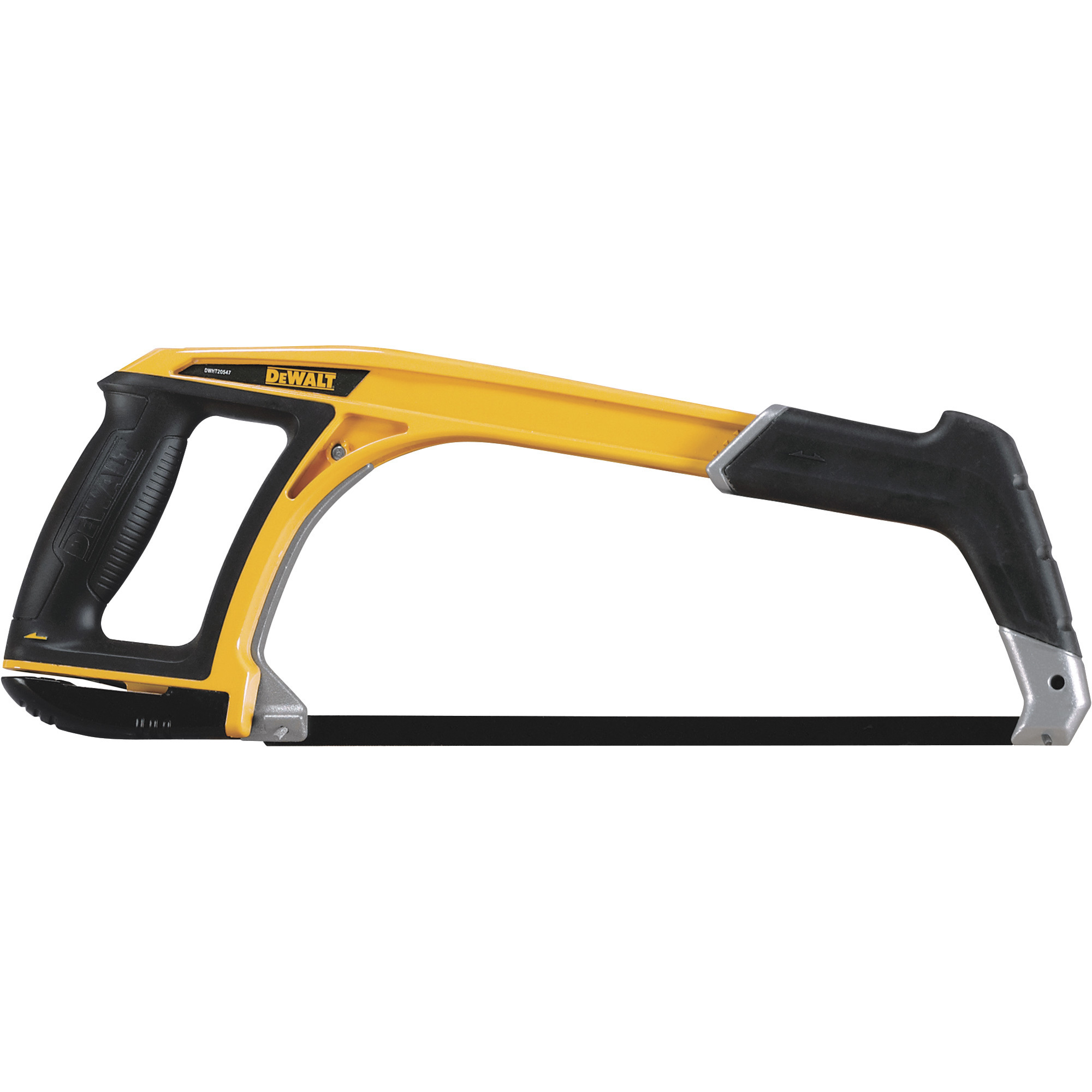
A handsaw is another essential tool for beginner DIYers. While power saws are great for larger tasks, a simple handsaw is enough for most cutting jobs around the home, like cutting through wood, PVC pipes, or plastic.
Best Option for Beginners:
Look for a 15-inch to 20-inch crosscut saw, which is perfect for cutting through smaller pieces of wood or plastic pipes and is easy to control. However, if you’re looking for even more versatility, the DeWalt 5-in-1 Hacksaw is a fantastic choice. This multi-functional tool combines the utility of a traditional hacksaw, a jab saw, and a pipe cutter all in one. Its adjustable frame allows you to easily switch between configurations for different cutting needs, making it perfect for cutting through a variety of materials like metal, PVC, and wood. The ergonomic handle ensures comfort during prolonged use, while the blade tensioning system provides secure, precise cuts. If you’re looking for a handsaw that can handle a broad range of tasks and last through many projects, the DeWalt 5-in-1 Hacksaw is an investment worth considering for your beginner toolkit.
10. Clamps
Clamps are incredibly useful for holding materials in place while you work. Whether you’re gluing a joint together, cutting, or drilling, clamps will help ensure that everything stays secure while you make your adjustments.
Best Option for Beginners:
A set of two or three C-clamps or spring clamps should be sufficient for most beginner DIY projects. They’re affordable, easy to use, and versatile enough for a range of tasks.
11. Sandpaper

For finishing projects, sanding is often necessary to smooth out rough edges and surfaces. Sandpaper is an easy-to-use and low-cost tool that will help give your projects a polished, professional look.
Best Option for Beginners:
Start with a few sheets of medium-grit (150-180) and fine-grit (220-300) sandpaper. You can easily hand-sand or use a sanding block for precision.
12. Workbench or Work Surface
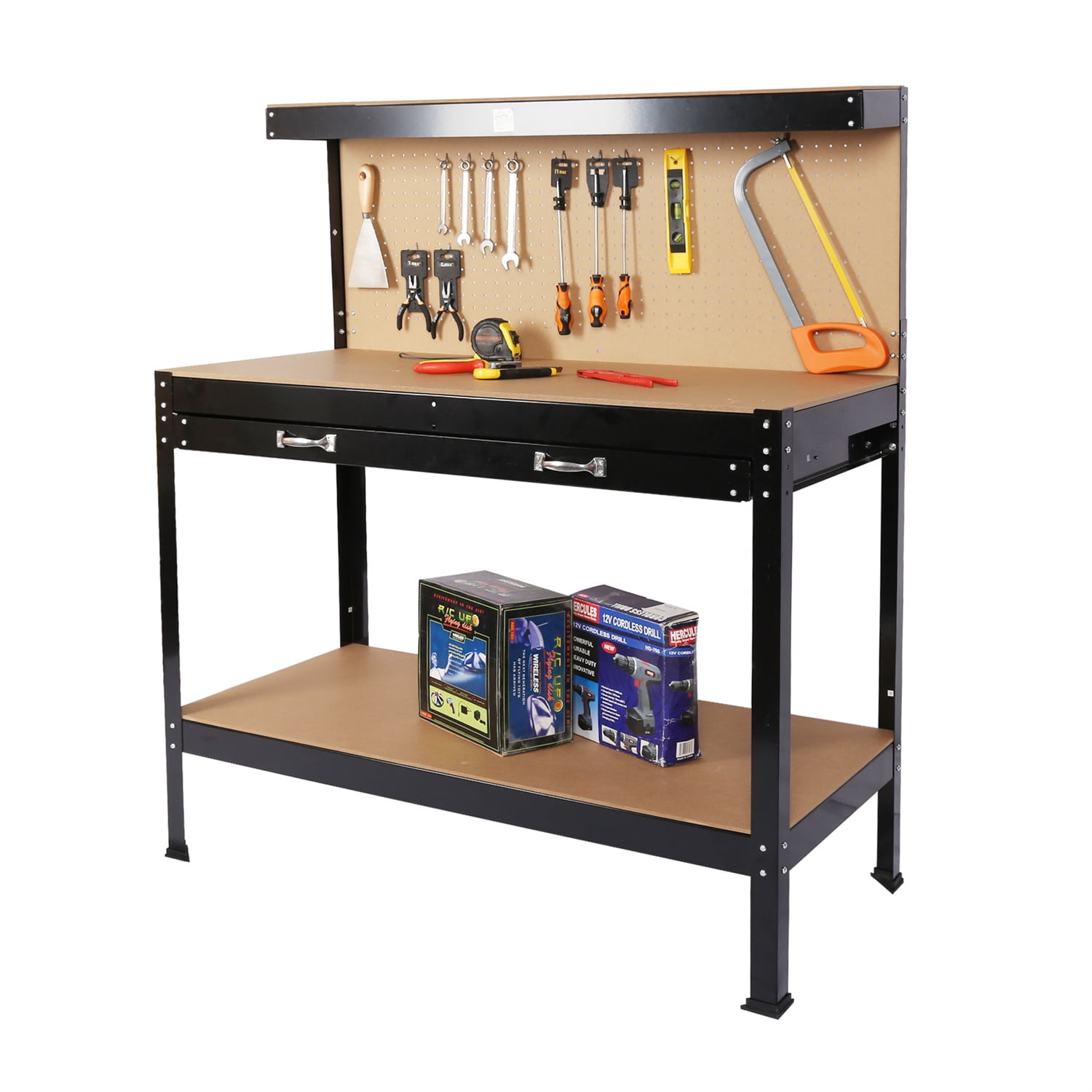
A sturdy workbench or portable work surface will provide you with a stable foundation for all your DIY tasks. Whether you’re cutting, sanding, or assembling, a workbench will make your work easier and more organized.
Best Option for Beginners:
If you don’t have space for a large workbench, look for a folding or portable work surface. These are affordable, versatile, and easy to store when not in use.
Tips for Beginners
While the tools listed above are essential, there are a few other tips you can follow to ensure your success as a DIYer:
1. Start with Simple Projects
Don’t overwhelm yourself by jumping into complicated projects. Start with something small, like installing shelves, hanging pictures, or building a simple table. Gradually increase the complexity of your tasks as you build your confidence and skills.
2. Prioritize Quality Over Quantity
You don’t need to own every tool in existence. Focus on purchasing quality hand tools that will last. Having the right tools that are durable and well-made will make your DIY experience much more enjoyable.
3. Practice Safety
Always prioritize safety when working with hand tools. Wear safety glasses, gloves, and proper footwear when necessary. Additionally, make sure you’re familiar with the correct techniques to avoid injury.
4. Maintain Your Tools
Keep your hand tools clean, sharp, and in good condition. Regularly oil metal parts to prevent rust and replace worn-out components, such as blades and screwdrivers, to maintain peak performance.
With the right hand tools, DIY projects become easier, more enjoyable, and less stressful. For beginner DIYers, it’s important to focus on quality tools that serve multiple purposes and are versatile enough to handle a variety of tasks. Hammer, screwdrivers, tape measure, utility knife, pliers, and a level should be your starting point, but as you continue to grow your skills, you’ll be able to add more specialized tools to your collection.
Happy DIY-ing, and remember, every project is a learning experience. Keep practicing, keep improving, and most importantly, have fun!
Last modified: January 31, 2025